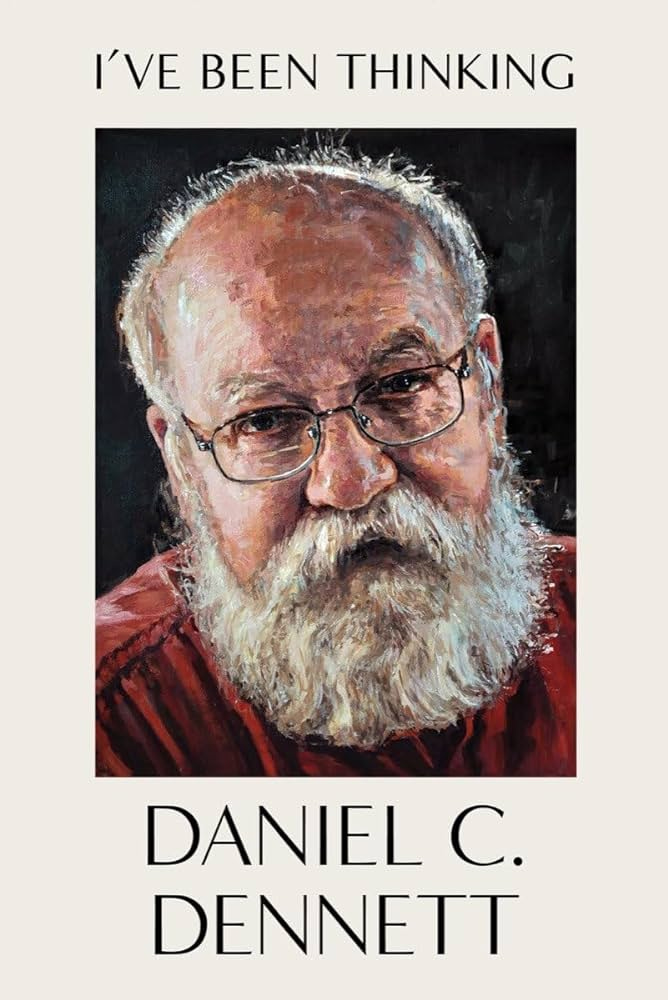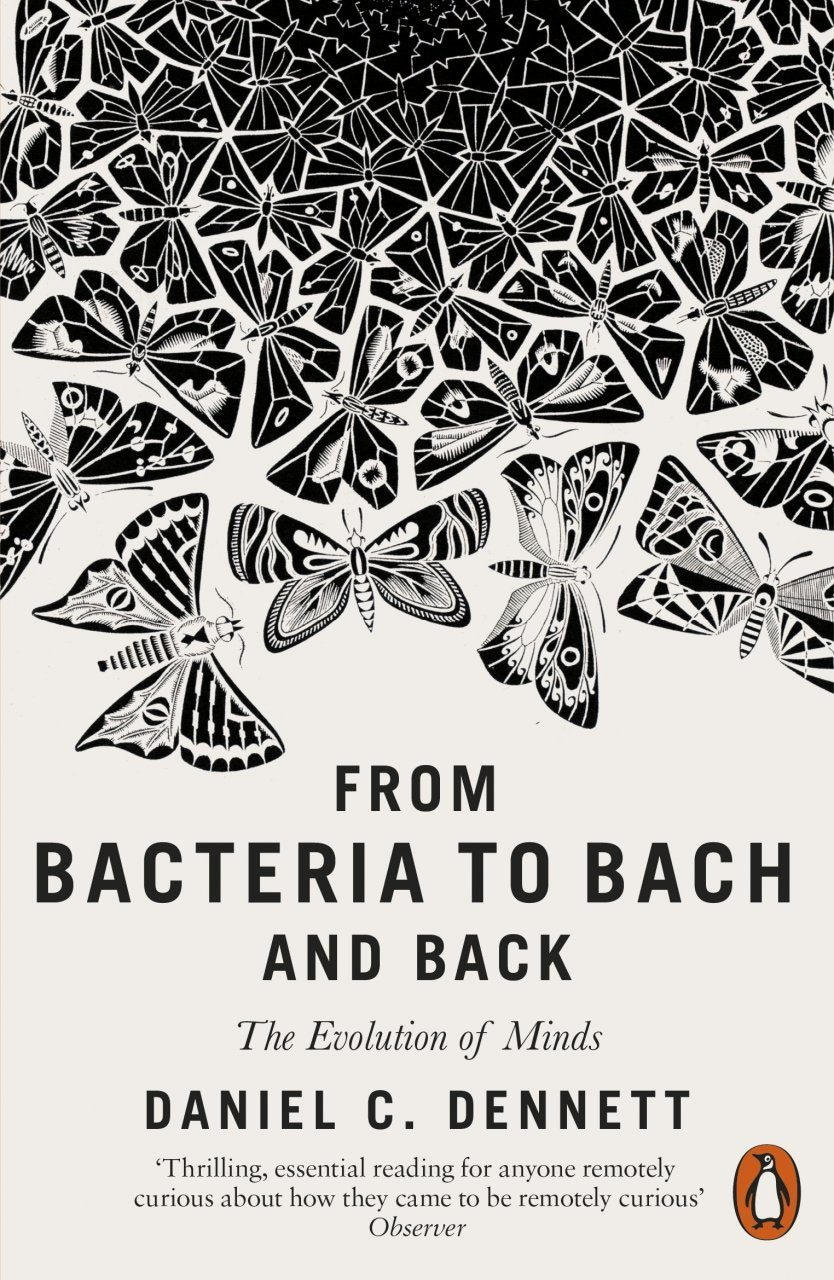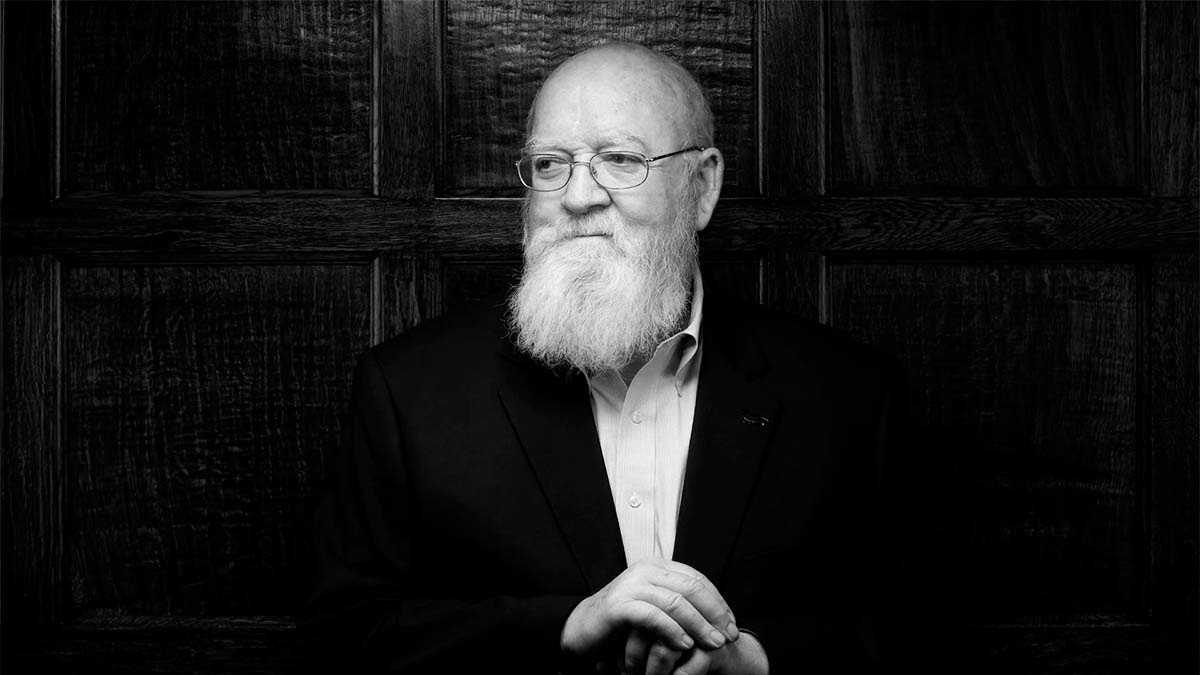In memory of Dan Dennett (1942-2024)
(From now on new posts in English will be published on my Substack, please subscribe there to receive my newsletter.)
Dan Dennett didn’t believe in the myth of the solitary, individual genius, the person who figures it all out by himself (in the mythology, it’s always a male). In his evolutionary worldview, design always emerges gradually and after many rounds of selection, including the “designs” of human intelligence. For Dennett, thinking is a deeply collaborative and social endeavour, not just in the sense of Newton’s “standing on the shoulders of giants”, but also in the sense that, when you look under the hood of so-called geniuses, you see mostly tinkering and reshuffling of earlier ideas, incremental improvements, many discarded failures, and hard toil. Dennett had toyed with titling his memoirs We’ve Been Thinking (rather than I’ve Been Thinking), to reflect this social and distributed nature of knowledge, and also to illustrate his counterintuitive theory that our brains are collections of memes, “packed with thinking tools we didn’t invent for ourselves but downloaded from our culture”.

And yet, what a brilliant, astute and original thinker Dennett was. If his brain was just a breeding ground of self-replicating memes, it must have been one of the most fertile fields of his generation. As his long-time friend
Richard Dawkins once wrote of him: “How unfair for one man to be blessed with such a torrent of stimulating thoughts”. One of his secret tricks, Dan reveals in his memoirs, is that he always surrounded himself with a coterie of smart and knowledgeable people, on whom he could offload some of the hard work of thinking. Rather than scaling mountains of insight by leaps of sheer genius, he always developed good ideas by endlessly revising, rearranging and correcting them: “Multiple Drafts is not just the name of my consciousness model; it describes my thinking and writing process”. And by not locking himself up in an ivory academic tower, but by leading an extraordinarily rich life, taking sailing trips, raising a family, making cider, playing jazz piano, writing songs and poetry, doing carpentry, working on his farm in Maine, inventing word games.
I had the privilege of spending some months together with Dennett at the Center of Cognitive Studies at Tufts University in 2016, together with fellow philosopher Krys Dolega. Back then he was working on his book From Bacteria to Bach and Back, and we intensively read and commented on each chapter. It was fascinating to see how the memes coalesced in his mind and transformed in response to rival memes competing for his attention (i.e. our critical comments). I remember at one point I couldn’t resist comparing two consecutive drafts with the ‘compare documents’ function in Microsoft Word. In response to a comment we had made, Dan had just crafted a completely new paragraph which fitted seamlessly within his story, without requiring any changes to the neighbouring paragraphs. As if it had sprung up fully-formed, without any trace of evolutionary precursors. I tried to peek behind the curtain and see the magician’s sleight of hand, but no luck. My friend Ryan McKay once told me how he had witnessed Dennett composing a joint commentary for the journal Behavioral and Brain Sciences (they later published an influential target paper on “adaptive misbelief” together). Early in the morning he sat down in his study, whereupon, without any apparent hesitation or back-tracking, beautifully crafted sentences flowed from his fingers. How did he pull it off? (I guess by that point all the jostling of rival memes, the discarding of bad alternatives and the ruthless trial and error must have happened intracranially.)

Over the last couple of days there has been an outpouring of heartwarming anecdotes on social media about how gracious and supportive Dennett was in his interactions with many people. Even for his sworn enemies, he seems to have been a source of inspiration and insight. I first met Dennett in 2011 at a conference at Center For Inquiry about his book Breaking the Spell, where I gave a talk about the cultural evolution of gods (and other supernatural beings) who “move in mysterious ways”, operating in a way that is indistinguishable from the natural course of events. With Dennett sitting in the first row, I remember I was quite nervous and intimidated by the near presence of such an intellectual giant. But Dan’s avuncular, good-spirited demeanour had a way of relaxing nerves, and he sent me a very encouraging email about my talk afterwards (I cherish these, as I imagine many others do who crossed his path).

In 2013, we invited Dennett to come to Ghent for a public debate about the Limits of Science, together with his fellow philosopher Massimo Pigliucci (who wrote a nice obituary here) and the physicist Lawrence M. Krauss. The debate, which I was asked to moderate, was captured on video and is still doing the rounds on YouTube (The event was called “Het Denkgelag”, an untranslatable Dutch pun on thinking and drinking). We strategically placed Dennett in the middle of the panel, mediating between the duelling Krauss and Pigliucci, who were at loggerheads about the proper limits of science. In a nutshell: Lawrence believes that science has no meaningful limit and can settle basically every (answerable) question, whereas Massimo thinks some questions fall outside the purview of science and scientists should not overstep these boundaries. And Dan? Though he was an avid defender of science, he also insisted on the value of philosophical argumentation, and pushed back against the long history of disparaging comments about philosophy made by famous scientists. As he memorably put it in Darwin’s Dangerous Idea: “There is no such thing as philosophy-free science; there is only science whose philosophical baggage is taken on board without examination”.
The last time I saw Dan was last November, when we had a Zoom discussion about a paper I wrote with my friend Simon Friederich on the cultural evolution of AI and the possibility of “selfish” AIs evolving through natural selection (an argument first developed by the philosopher Dan Hendrycks). In our paper we pursue some analogies with domestication of animals, a process that, though technically falling under the definition of “natural selection”, doesn’t lead to the brutal selfishness and hunger for dominance that is typical of blind selection, thanks to the supervision by intelligent humans. Somewhat to my surprise, Dan was very worried about scenarios of rogue AIs dominating humanity, and he believed that we were too sanguine about the risk. With hindsight, I shouldn’t have been surprised, as Dan had always drawn attention to the possibility that selfish replicators (genes or memes) could turn against their hosts. As he never tired of asking: cui bono? Who or what benefits? Dan’s warning really gave me pause, and in the end I think I agree with him conditionally: if AIs were ever allowed to compete in a truly Darwinian selection tournament, in which only the most ruthless and dominant survive, that would bode ill for human civilization (our paper argues that these conditions are unlikely to arise, but perhaps we’re wrong). In any event, our paper has benefited immeasurably from Dan’s critical comments, and we will dedicate it in his honour. I hope that, for once in his life and for the sake of the human race, Dan will be proven wrong this time.
Last year the philosopher Eric Schwitzgebel trained a large language model on the writings of Dan Dennett, and then asked a roster of philosophers and Dennett experts to discriminate between answers provided by the real Dennett and those generated by AI-Dennett. I’m proud to say I nailed 9 out of 10, but it was far from easy: AI-Dennett produced some impressive counterfeits, hard to distinguish from the real thing. But of course there was no magic, and the answers were all derivative: the LLM was simply trained on the considerable output of the real Dan, diligently parroting his particular style, turns of phrase, and (mostly) the substance of his arguments. But the AI-Dennett will be cold comfort for the immeasurable loss of Dan’s passing. It will be a very long time before an AI can generate a completely original book that could’ve been written by Dennett, a logical extrapolation of the train of thoughts that started with Content and Consciousness in 1969 (and of course long before, in interaction with so many others), and that would be indistinguishable from the virtuoso performances of the real Dan. And even then, AI-Dennett will never give you a big, grandfatherly hug.
I’m very grateful to have known Dan, and to have been in his orbit for a few years. Thank goodness that he lived 18 years longer than he would have without the marvels of medical science, dexterous surgeons, and kind nurses, as he wrote in a beautiful piece from 2006 about his bypass surgery. Think about all we would’ve missed!
But alas, even medical science has its limits. We will miss you dearly, Dan
***
P.S. A fond personal memory: Dan Dennett playing ‘frigatebird’ with me, a game with Scrabble tiles of his own invention in which you snatch away letters from your opponent to form words, like a sneaky frigatebird (I think he won; he was very competitive but encouraging.)
